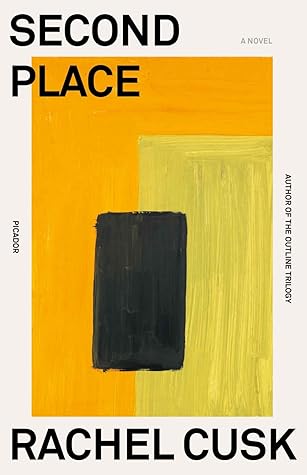More on this book
Community
Kindle Notes & Highlights
Fear is a habit like any other, and habits kill what is essential in ourselves.
Why do we live so painfully in our fictions? Why do we suffer so, from the things we ourselves have invented?
I hold back, embarrassed by need – my own and other people’s. This sounds like a ridiculous quality, and I’ve always known I would be the first to be trampled underfoot in a crisis, though I’ve noticed that children are also like this and find the needs of their particular body embarrassing. When I say this to Tony, that I would be the first to go under because I wouldn’t fight for my share, he laughs and says he doesn’t think so. So much for self-knowledge, Jeffers!
I could never reconcile myself to the fact that just as you’ve recovered from your own childhood, and finally crawled out of the pit of it and felt the sun on your face for the first time, you have to give up that place in the sun to a baby you’re determined won’t suffer the way you did, and crawl back down into another pit of self-sacrifice to make sure she doesn’t!
This is the difference, I suppose, between an artist and an ordinary person: the artist can create outside himself the perfect replica of his own intentions. The rest of us just create a mess, or something hopelessly wooden, no matter how brilliantly we imagined it.
I thought it was a mere unbuttoning, a release, where in fact – as you know well – it is the dividend yielded by an unrelenting obedience to and mastery of the laws of creation. The rigorously trained fingers of the concert pianist are freer than the enslaved heart of the music lover can ever be. I suppose this explains why great artists can be such dreadful and disappointing people. Life rarely offers sufficient time or opportunity to be free in more than one way.
Change is also loss, and in that sense a parent can lose a child every day, until you realise that you’d better stop predicting what they’re going to become and concentrate on what is right in front of you.
The truth was I had always assumed that pleasure was being held in store for me, like something I was amassing in a bank account, but by the time I came to ask for it I discovered the store was empty. It appeared that it was a perishable entity, and that I should have taken it a little earlier.
My suspicion was that the artist’s soul – or the part of his soul in which he is an artist – has to be entirely amoral and free of personal bias. And given that life as it goes on works to reinforce our personal bias more and more in order to allow us to accept the limitations of our fate, the artist must stay especially alert so as to avoid those temptations and hear the call of truth when it comes. That call, I believe, is the easiest thing in the world to miss – or rather, to ignore. And the temptation to ignore it comes not just once but a thousand times, all the way until the end.
Whatever I imagined getting from Tony, it wasn’t this sparkling river of words that flowed through me and irrigated me and began to bring me slowly back to life. It has allowed me ever after to live with his silence, because I know that the river is there, and that only I am permitted to have this knowledge.
Only I drifted around like a vagrant spirit, cast out of the home of myself to be buffeted by every word and mood and whim of other people! Sensitivity all at once seemed to me like the most terrible curse, Jeffers, foraging for truth in a million pointless details, when in fact there was only one truth, and it lay beyond the power of description.
For the first time, Jeffers, I considered the possibility that art – not just L’s art but the whole notion of art – might itself be a serpent, whispering in our ears, sapping away all our satisfaction and our belief in the things of this world with the idea that there was something higher and better within us which could never be equalled by what was right in front of us.


